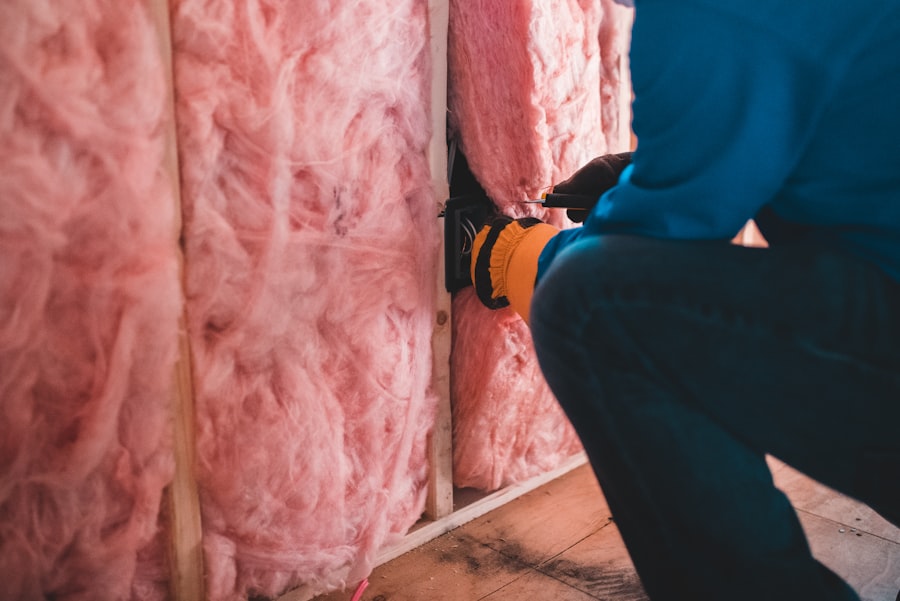In any relationship, communication serves as the foundation upon which trust and understanding are built. When you find yourself in a situation where communication is lacking, it can lead to a myriad of problems. You may notice that conversations become superficial, filled with small talk rather than meaningful exchanges.
This absence of open dialogue can create a sense of distance, making it difficult for you to express your thoughts and feelings. You might feel as though your voice is not being heard, leading to frustration and resentment. Moreover, the lack of communication can result in misunderstandings that fester over time.
You may misinterpret your partner’s actions or intentions, leading to unnecessary conflict. When you cannot openly discuss your concerns or desires, it becomes easy to harbor negative feelings. This cycle can perpetuate itself, creating a rift that seems insurmountable.
The longer you allow this lack of communication to persist, the more challenging it becomes to bridge the gap and restore a sense of connection.
Key Takeaways
- Lack of communication can lead to misunderstandings and resentment in a relationship.
- Decreased social interaction can result in feelings of isolation and disconnection from the outside world.
- Emotional distancing can create a barrier between partners, making it difficult to connect on a deeper level.
- Control and manipulation can erode trust and lead to feelings of powerlessness in a relationship.
- Unwillingness to compromise can lead to ongoing conflict and dissatisfaction in a relationship.
Decreased Social Interaction
As relationships evolve, you may find that social interactions begin to dwindle. Initially, you might have enjoyed spending time with friends and family, but as your relationship deepens, you may notice a shift in priorities. Your partner may prefer to keep you close, leading to a decrease in social outings and gatherings.
This isolation can be subtle at first, but over time, you may realize that your social circle has shrunk significantly. The consequences of decreased social interaction can be profound. You might feel a sense of loss as friendships fade and opportunities for connection diminish.
This isolation can lead to feelings of loneliness and disconnection from the world around you. You may find yourself longing for the camaraderie and support that comes from engaging with others outside of your relationship. The lack of social interaction can create an unhealthy dynamic where your partner becomes your sole source of companionship, which can be both suffocating and unfulfilling.
Emotional Distancing

Emotional distancing is another significant issue that can arise in relationships marked by a lack of communication and social interaction. You may find that you and your partner are physically present but emotionally miles apart. This disconnect can manifest in various ways, such as a reluctance to share personal thoughts or feelings.
You might feel as though you are walking on eggshells, unsure of how to approach sensitive topics without triggering conflict. As emotional distancing takes hold, you may begin to question the strength of your bond. You might feel a growing sense of emptiness or dissatisfaction, wondering if the love you once shared has faded into something more akin to companionship.
This emotional void can lead to feelings of insecurity and self-doubt, making it difficult for you to navigate the complexities of your relationship. The longer this emotional distance persists, the more challenging it becomes to rekindle the intimacy that once defined your connection.
Control and Manipulation
| Control and Manipulation Metrics | 2019 | 2020 | 2021 |
|---|---|---|---|
| Number of control experiments | 150 | 160 | 170 |
| Percentage of successful manipulations | 85% | 87% | 90% |
| Time taken for manipulation (in minutes) | 10 | 9 | 8 |
In some relationships, control and manipulation can become pervasive issues that undermine your sense of autonomy. You may find that your partner attempts to dictate various aspects of your life, from your social interactions to your personal choices. This controlling behavior can manifest subtly at first, perhaps through seemingly innocuous comments or suggestions.
Manipulation often accompanies control, leading you to question your own perceptions and feelings. Your partner may employ tactics such as gaslighting, making you doubt your reality or experiences.
This psychological manipulation can leave you feeling confused and powerless, eroding your self-esteem and sense of self-worth. As you grapple with these dynamics, it becomes increasingly important to recognize the signs of control and manipulation so that you can reclaim your agency and establish healthier boundaries.
Unwillingness to Compromise
Compromise is a vital component of any successful relationship; however, when one or both partners are unwilling to bend, it can lead to significant tension and conflict. You may find yourself in situations where your needs and desires are consistently overlooked or dismissed. This unwillingness to compromise can create an environment where resentment builds over time, as you feel increasingly unheard and unvalued.
The inability to find common ground can also stifle growth within the relationship. You might feel trapped in a cycle of disagreement, where every discussion devolves into an argument rather than a constructive exchange of ideas. This rigidity can prevent both partners from evolving together, leading to stagnation and dissatisfaction.
Ultimately, recognizing the importance of compromise is essential for fostering a healthy relationship dynamic where both partners feel valued and respected.
Increased Dependence

In some relationships, increased dependence can develop as one partner becomes overly reliant on the other for emotional support or validation. You may find yourself leaning heavily on your partner for reassurance or guidance, which can create an imbalance in the relationship. While it’s natural to seek support from those we love, excessive dependence can lead to feelings of inadequacy and insecurity.
This dynamic can also place undue pressure on your partner, who may feel overwhelmed by the responsibility of meeting all your emotional needs. As this dependence grows, you might find it challenging to maintain a sense of individuality or pursue personal interests outside the relationship. The result is often a cycle where both partners feel trapped—one by their need for support and the other by the weight of expectation.
Recognizing this pattern is crucial for fostering a healthier balance in the relationship.
Lack of Support
A healthy relationship thrives on mutual support; however, when this support is lacking, it can lead to feelings of isolation and discontent. You may find yourself facing challenges without the encouragement or understanding of your partner. This absence of support can manifest in various ways—whether it’s during difficult times at work or personal struggles—leaving you feeling alone in your journey.
The lack of support can also erode trust and intimacy within the relationship. You might begin to question whether your partner truly cares about your well-being or if they are more focused on their own needs. This disconnect can create a sense of emotional distance that is difficult to bridge.
To foster a more supportive environment, it’s essential for both partners to actively engage in each other’s lives and offer encouragement during challenging times.
Excessive Jealousy
Jealousy is a common emotion in relationships; however, when it becomes excessive, it can lead to significant strain and conflict. You may find that your partner’s jealousy manifests in controlling behaviors or unfounded accusations, creating an atmosphere of distrust and insecurity. This excessive jealousy can stem from insecurities within the relationship or unresolved issues from past experiences.
As jealousy escalates, it can create a toxic cycle where both partners feel trapped in a web of suspicion and resentment. You might feel suffocated by constant questioning or monitoring of your actions, leading to feelings of frustration and anger. It’s essential to address these feelings openly and honestly; otherwise, they can poison the relationship over time.
Establishing trust and open communication is vital for overcoming jealousy and fostering a healthier connection.
Physical and Emotional Abuse
Physical and emotional abuse are serious issues that can have devastating effects on individuals within a relationship. If you find yourself in a situation where abuse is present—whether it’s verbal insults or physical violence—it’s crucial to recognize that this behavior is unacceptable. No one deserves to be treated with disrespect or harm, regardless of the circumstances.
The impact of abuse extends far beyond physical injuries; it can leave deep emotional scars that affect your self-esteem and mental well-being.
Seeking help from trusted friends or professionals is essential for breaking free from abusive dynamics and reclaiming your sense of self-worth.
Loss of Individuality
In some relationships, particularly those marked by control or dependence, you may experience a loss of individuality over time. You might find yourself conforming to your partner’s preferences or desires at the expense of your own identity. This erosion of self can lead to feelings of emptiness and dissatisfaction as you struggle to remember who you are outside the confines of the relationship.
The loss of individuality can also stifle personal growth and development. You may feel hesitant to pursue interests or passions that differ from those shared with your partner, fearing judgment or disapproval. It’s essential to prioritize self-discovery and maintain a sense of autonomy within the relationship; otherwise, you risk losing sight of what makes you unique and fulfilled as an individual.
Feeling of Loneliness
Despite being in a relationship, many individuals experience profound feelings of loneliness. This paradox often arises when emotional connection is lacking or when communication breaks down entirely. You may find yourself surrounded by someone yet still feel isolated in your thoughts and emotions.
This loneliness can be particularly painful when you yearn for intimacy but find it elusive. The feeling of loneliness can lead to further complications within the relationship as it breeds discontentment and frustration. You might begin to question whether the relationship is worth pursuing if it leaves you feeling so disconnected from your partner.
Acknowledging these feelings is crucial for addressing underlying issues and fostering a deeper connection with one another. By prioritizing open communication and emotional vulnerability, you can work towards alleviating loneliness and rebuilding intimacy within the relationship. In conclusion, navigating the complexities of relationships requires ongoing effort and commitment from both partners.
By recognizing the signs of unhealthy dynamics—such as lack of communication, emotional distancing, control, and excessive jealousy—you empower yourself to make informed decisions about your well-being. Prioritizing mutual support, compromise, individuality, and open dialogue will help foster healthier connections that enrich both partners’ lives while minimizing feelings of loneliness and isolation.
In relationships, recognizing the signs of isolation can be crucial for maintaining a healthy connection with your partner. Isolation can manifest in various ways, such as a lack of communication, reduced social interactions, or feeling emotionally distant. Understanding these signs can help individuals address issues before they escalate. For more insights on this topic, you can explore an article on the subject by visiting Unplugged Psych, which offers valuable information on psychological well-being and relationship dynamics.
WATCH THIS! 🧠 The 11 Manipulation Tactics That Trap Smart People
FAQs
What are signs of isolation in a relationship?
Some signs of isolation in a relationship include one partner controlling the other’s social interactions, limiting their access to friends and family, and making them feel guilty for spending time away from the relationship.
How does isolation affect a relationship?
Isolation can lead to feelings of loneliness, depression, and low self-esteem in the isolated partner. It can also create a power imbalance in the relationship, leading to control and manipulation by the isolating partner.
What are the potential causes of isolation in a relationship?
Isolation in a relationship can be caused by insecurity, jealousy, control issues, or a desire for power and dominance. It can also be a result of past trauma or experiences that have led to a fear of abandonment.
How can one address isolation in a relationship?
Addressing isolation in a relationship requires open and honest communication between partners. It may also involve seeking support from a therapist or counselor to address underlying issues and develop healthier relationship dynamics.
What are the potential consequences of prolonged isolation in a relationship?
Prolonged isolation in a relationship can lead to emotional and psychological harm, including anxiety, depression, and a sense of helplessness. It can also damage the overall health and well-being of both partners.




